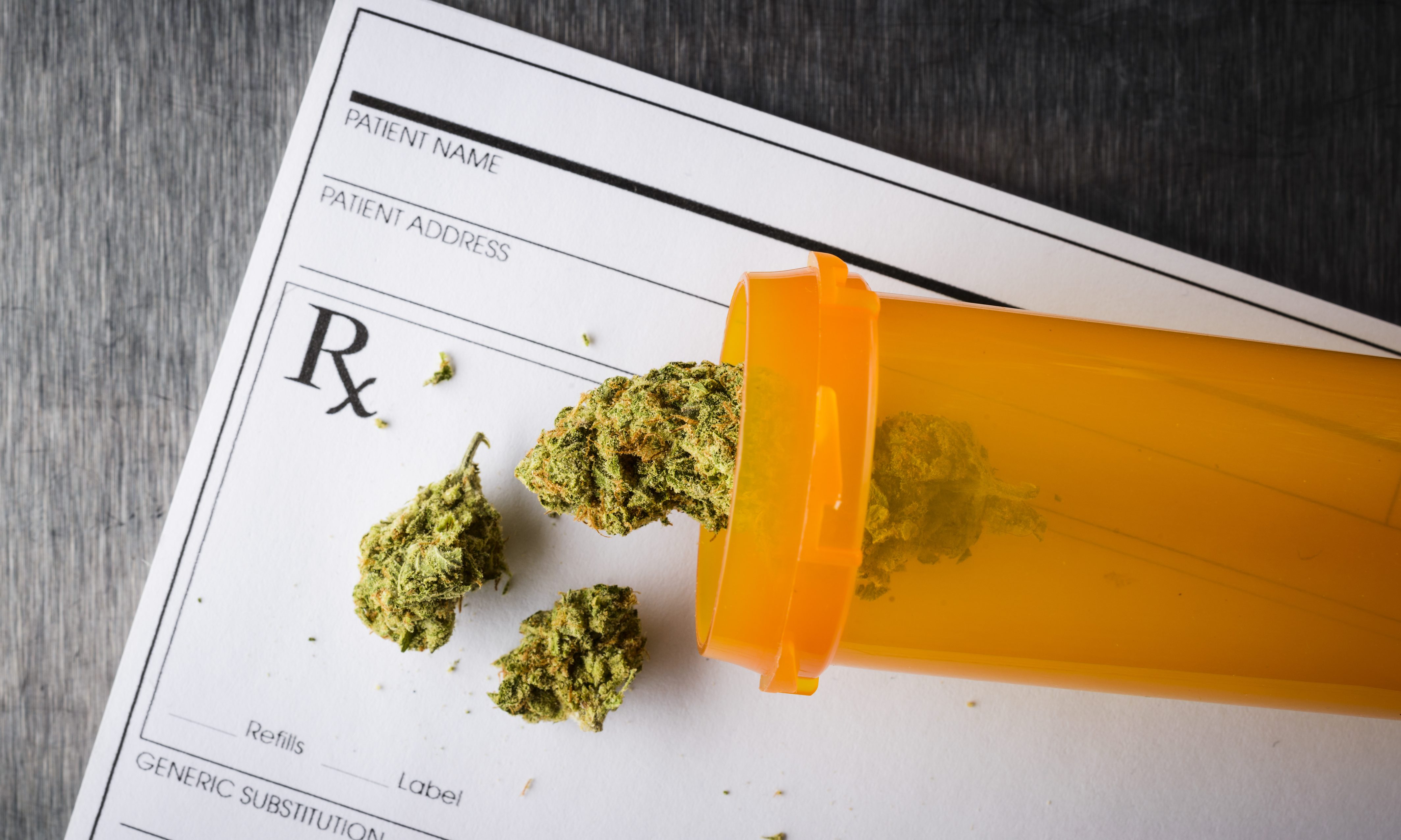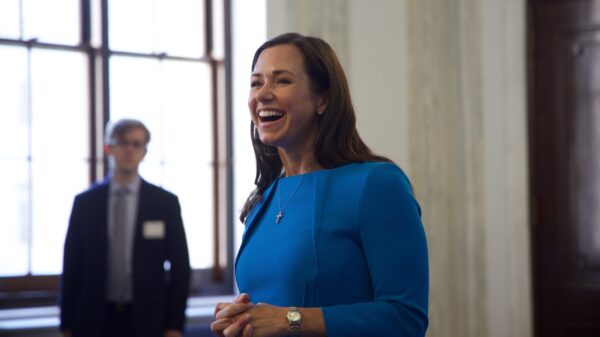Thursday, the Alabama Medical Cannabis Study Commission heard from two highly respected medical expert witnesses with widely divergent views on the wisdom of passing medical marijuana legislation.
Bertha K. Madras is a professor of psychobiology in the Department of Psychiatry and the chair of the Division of Neurochemistry at Harvard Medical School, She served as associate director for public education in the division on addictions at Harvard Medical School. Dr. Madras advised the Commission against passing medical marijuana legislation.
Dr. Bertha Madras said that evidence of marijuana being used medically can be traced as far back as 1600 years ago with the discovery of a woman who died in childbirth due to a breach.
Madras said that the state passing medical marijuana legislation “Puts the entire drug approval system at risk.”
“Marijuana is not safe for you: all measures are worse,” Dr. Madras said, “Marijuana is not the solution for the opioid crisis.”
Dr. Madras pleaded with legislators to let the FDA (Food and Drug Administration) make the rules for medical marijuana and not go around the federal government by passing state legislation legalizing marijuana as medicine without doing the scientific research and trials necessary to get drugs approved by the FDA. Thousands of, “People died until we had the FDA.”
Madras said that the proper research has not been done on things such as proper drug delivery and that the marijuana industry is selling products that can be delivered by: “smoke, vape, eat, drink, IV, and cream. “What about Specific populations? Pregnant women? Elderly?”
Madras warned that this is not your father’s marijuana, “The THC has risen to as high as 90 percent” in some products.
Madras warned that marijuana is, “Addictive.” She also warned that it produces intoxication and impairs cognitive functions and that its use can lead to anxiety and produce a psychotic reaction. Madras warned that the drug is not safe for youth and that opioid addicts generally start using marijuana. She argued that there is not enough evidence to use marijuana as a treatment to prevent opioid dependency.
Madras argued that what the state would be doing would be detrimental to the FDA system and that the state should not approve legalization until the FDA approves its use/ She did say that she was not for keeping cancer patients from having it though.
“Medicine is trusted because of its scientific base and tight regulation,” Madras said and that medical marijuana, “Is the least regulated medical drug in the U.S. and should be held to medical standards.”
Madras argued against using cannabis to treat pain issues saying that “Pain is an undecipherable medical condition,” and warned that the amount of marijuana needed to treat pain and the amount needed to produce euphoria overlap.
The crowd attending the hearing included many persons there to support medical marijuana and a number of people there scoffed at Dr. Madras’s assertions.
Dr. Alan Shackelford made the case for allowing medical cannabis.
Shackleford claimed that he had one elderly patient who was using multiple opioids daily to treat her chronic pain issues and through medical cannabis can tap dance now.
“When Colorado passed medical cannabis regulations in Colorado I knew very little about it,” Dr Shackleford said. But has studied the issue and has found a number of applications for the drug in his medical practice.
Shackleford said that the Colorado medical cannabis law allowed using the drug to treat: Cancer, HIV/Aids, glaucoma, cachexia, severe pain, severe nausea, seizures, and persistent muscle spasms. PTSD was added in June 2017 and autism was added in April 2019.
“I practice evidence based medicine,” Dr. Shackelford claimed.
Shackelford said that there was a paper showing that the THC in marijuana extract could kill cancer cells in animals in 1975; but they did not do anything with it because of the anti-marijuana bias in the research funding.
Shackelford said that there have been 31 studies on marijuana dosing because of the cost of doing the research given the rules put in place by the government and the bias against the drug.
“Cannabis misue is not a great thing; but people do not die from it however,” Dr. Shackelford said.
Dr. Shackelford said that cannabis has been used to treat seizures by doctors since at least 1464 when it was recorded that it was used in Baghdad.
Dr. Shackelford showed movies of a child named Charlotte whom he is treating with a cannabis product. “Charlotte is laughing playing with puzzles, and dancing.” She went from having 300 seizures a week to just five a month after Shackelford began using cannabis to treat her epilepsy.
“The Mayo Clinic says that 70 percent of all doctor’s visits are for joint and back pain,” Dr. Shackelford said. Over the counter medications are used to treat pain; but that the side effects of those medication cause gastrointestinal bleeding that leads to over 100,000 people being hospitalized. Thousands die from those side effects.
Shackelford said that Canada uses cannabis to treat PTSD in its soldiers who were sent to Afghanistan. They had 15 veteran suicides in 2018. The U.S. had over 6000 in U.S.
“The government has made it difficult to do studies,” Shackelford said. “But there is evidence that cannabinoids will treat PTSD.”
“We ow it to our veterans who are dying,” Shackelford said.
“33 states have medical cannabis and 13 have recreational cannabis,” Shackelford said. “States with medical opioids have 24.8 percent lower rate of overdose death.”
Shackelford said that if all states would allow medical cannabis it would save Medicaid over a billion dollars.
“There has never been a marijuana overdose death,” Shackelford asserted.
Shackelford dismissed studies showing that youth who used marijuana had eroded white matter in their brains because they were also using alcohol which has been shown to be much more damaging to the youth’s brain white matter.
Shackelford said that he has had patients move to Colorado to get treatment, “Nobody should have to move from Alabama,” to get treatment.
“I don’t want any veteran who fought for us in Iraq or Afghanistan to be shooting themselves,” Dr. Shackelford said. “Y’all should have the same stuff that 33 other states have.”
Doctor Shackleford a world reknown medical physician, who like members of the commission, did not believe in medical cannabis- until he did the research,” lobbyist and marijuana advocate Chey Garrigan said. The research is that cannabis works and people do not die!”
“Doctor Shackleford, stated that, ‘We owe it to our Veterans, who are dying’, to make it available in a structured and regulated manner for treatments that could be beneficial with physician oversight,” Garrigan told APR.
The Medical Cannabis Study Commission is chaired by State Senator Tim Melson, R-Florence.
“We are close to the end,” Melson told the commission members.
The commission is already drafting a bill and should be through with that by December 1. They will vote on that bill in their December meeting. Whatever that final bill says, Melson is expected to introduce it in the Legislature in the 2020 Regular Session which begins on February 4.


















































